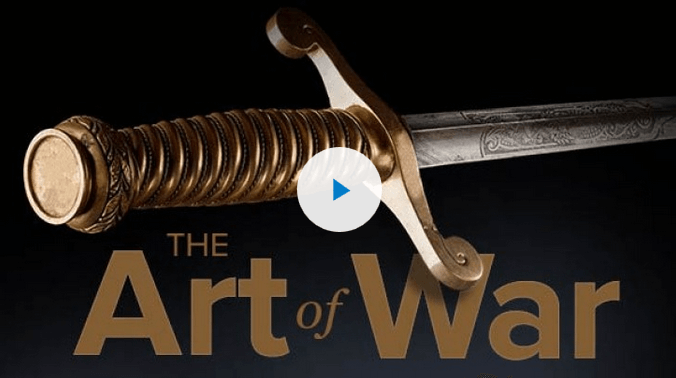Andrew R. Wilson – The Art of War
$70 Original price was: $70.$24Current price is: $24.
Shopping Instructions:
- DISCOUNT 15% : SHOP15
- Product Delivery: Within 1 – 12 hours after purchase.
The Art of War is both a guide for competition and preparing so well for competition that one’s organizational strength and focus awes the enemy into giving up without a fight. Through the professor’s use of real-world examples, you’ll understand the qualities effective commanders
Andrew R. Wilson – The Art of War
As a landmark achievement in the evolution of strategic thought, Sun Tzu’s The Art of War has had a powerful and lasting influence on military strategy around the globe. Its maxims have been invoked by everyone from the nuclear strategists of the cold war to China’s modern cyber warriors.
So universal and timeless are its tactics for pursuing a competitive advantage that some of the most notable people in government, sports, and the entertainment world have all quoted from its nearly 2500-year-old pages.
So why is a Chinese guide to military strategy written in 330 to 320 B.C. so prevalent in modern military operations, business school curricula, sports, and popular culture? What can its lessons offer us today?
As award-winning Professor Andrew R. Wilson of the U.S. Naval War College demonstrates in the six expertly crafted lectures of The Art of War, this classic’s wisdom for staying nimble in an ever-changing environment and for maximizing reward while minimizing risk remains eternally fresh. As war and business become more mental and less physical, human intellect plays an ever greater role in competition—making Sun Tzu’s strategies highly relevant to the information age.
Furthermore, as China becomes increasingly economically influential, militarily capable, and politically assertive, it behooves us to study a book so central to the country’s philosophical past.
Through a precise explanation of the original text and case studies, this course examines how the seminal work’s model of leadership has been applied—and misapplied—throughout the realms of war, politics, business, and beyond.
An Inquiry Grounded in History
As an expert in Chinese history, language, and culture who has studied numerous versions of The Art of War, Professor Wilson is uniquely qualified to orient you to the cultural landscape against which the guide was composed.
You’ll begin your exploration by delving into the work’s likely origins with an anonymous author who appropriated Sun Tzu’s military credentials two centuries after his death. Then, you’ll trace how dramatic changes in the scale, scope, and expense of war between the 8th and 4th centuries B.C. inspired this new strategic paradigm.
You’ll learn how
- armies of aristocrats from feuding confederations waged battles predicated on ritual, glory, and vengeance during the Zhou dynasty in the 8th century B.C.;
- the dominant northern state of Qi began to choose the talent of commanders over a noble pedigree in the 7th century B.C.; and
- organized states with massive armies and standardized weaponry formed in the Warring States period that spanned the 5th to 3rd centuries B.C., yet anachronistic notions about war prevailed.
With this historical framework established, you’re ready to delve into the critical calculations that must be made prior to war—what Sun Tzu refers to as knowing the enemy, knowing ourselves.
A New Model of Leadership
The Art of War is both a guide for competition and preparing so well for competition that one’s organizational strength and focus awes the enemy into giving up without a fight. Through the professor’s use of real-world examples, you’ll understand the qualities effective commanders must possess and the work’s practical implications for outmaneuvering competitors in daily life.
Beyond the Modern Phenomenon
Sun Tzu’s words are often easy fodder for superficial approaches to the work. However, The Art of War eschews reducing the maxims to mere platitudes and removing the lessons from their original context.
As an expert in Chinese strategic thought who is so passionate about this book that he’s read the original text word for word in classical Chinese, Professor Wilson demonstrates the nuanced meaning of the language, along with the work’s contemporary value, from a scholarly perspective that makes your independent reading exponentially more vital. By taking this course, you will appreciate Sun Tzu’s content on a far deeper level.
Read more: https://www.thegreatcourses.com/courses/the-art-of-war.html
Related products
Personal Development
Personal Development
Personal Development
Personal Development
Tony Robbins – New Money Masters Elite + Bonuses [Complete Version]
Personal Development
Personal Development
Personal Development









![Tony Robbins – New Money Masters Elite + Bonuses [complete Version]](https://copicourse.com/wp-content/uploads/2021/08/tony-robbins-new-money-masters-elite-bonuses-complete-version-300x400.jpg)


